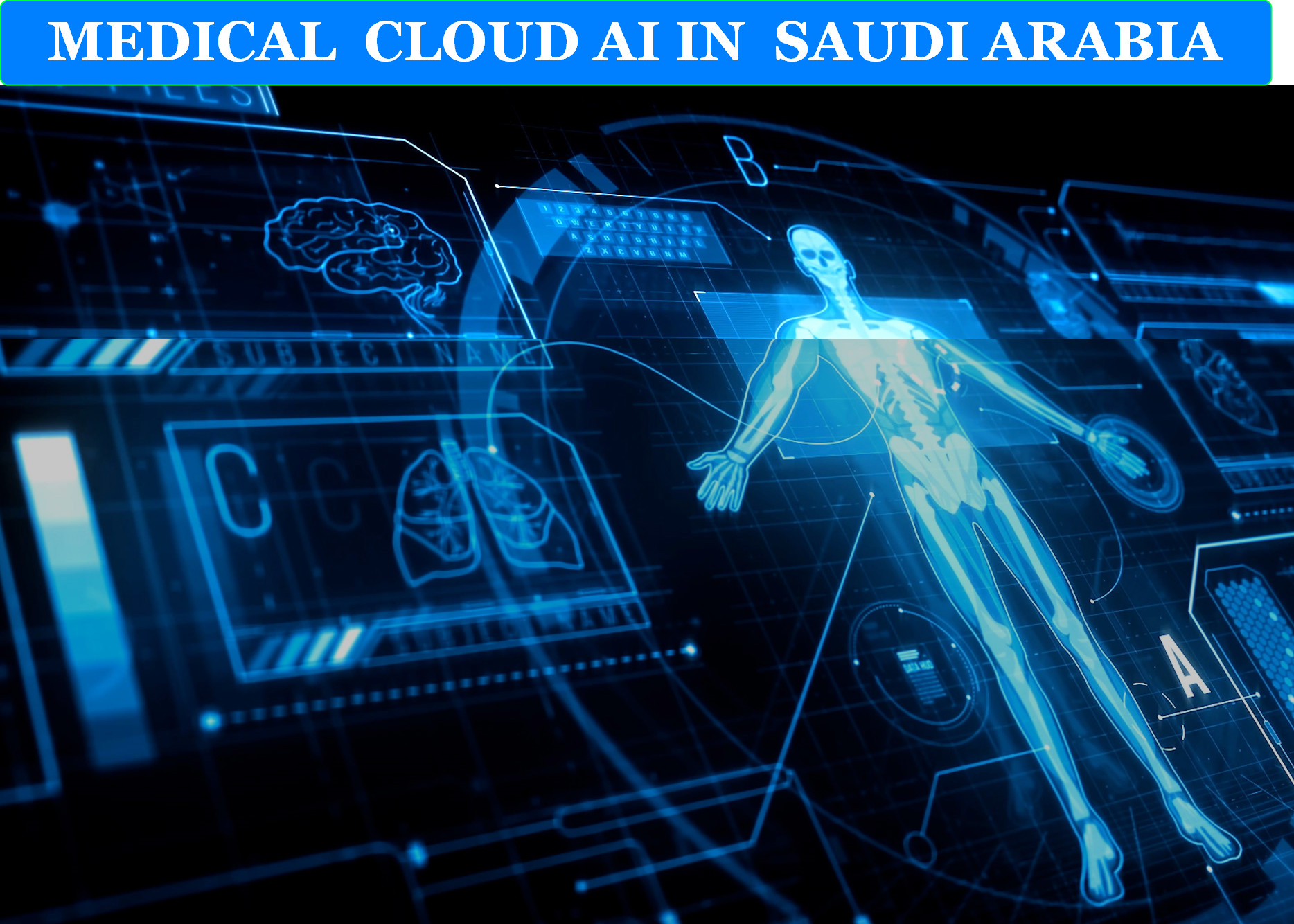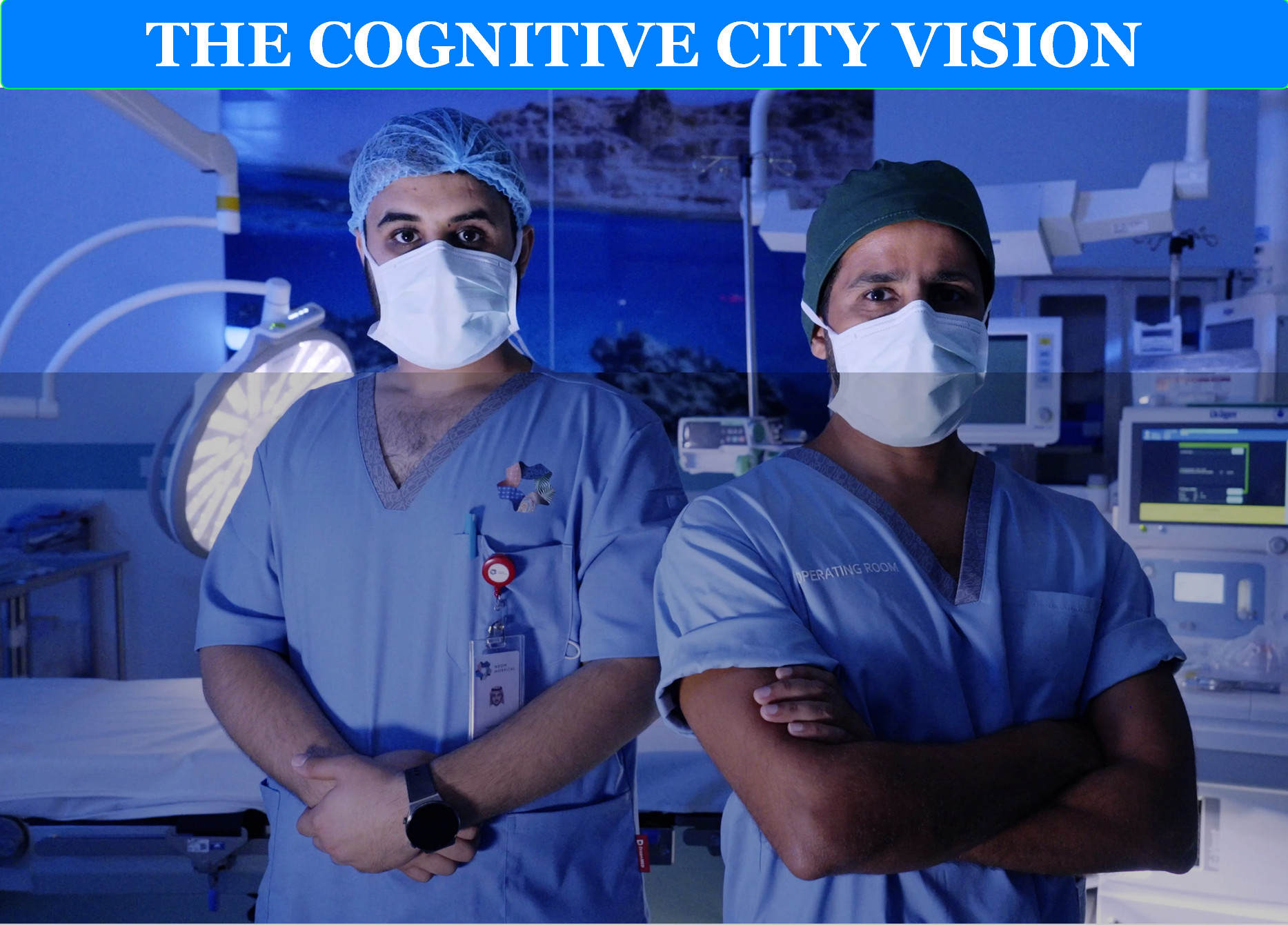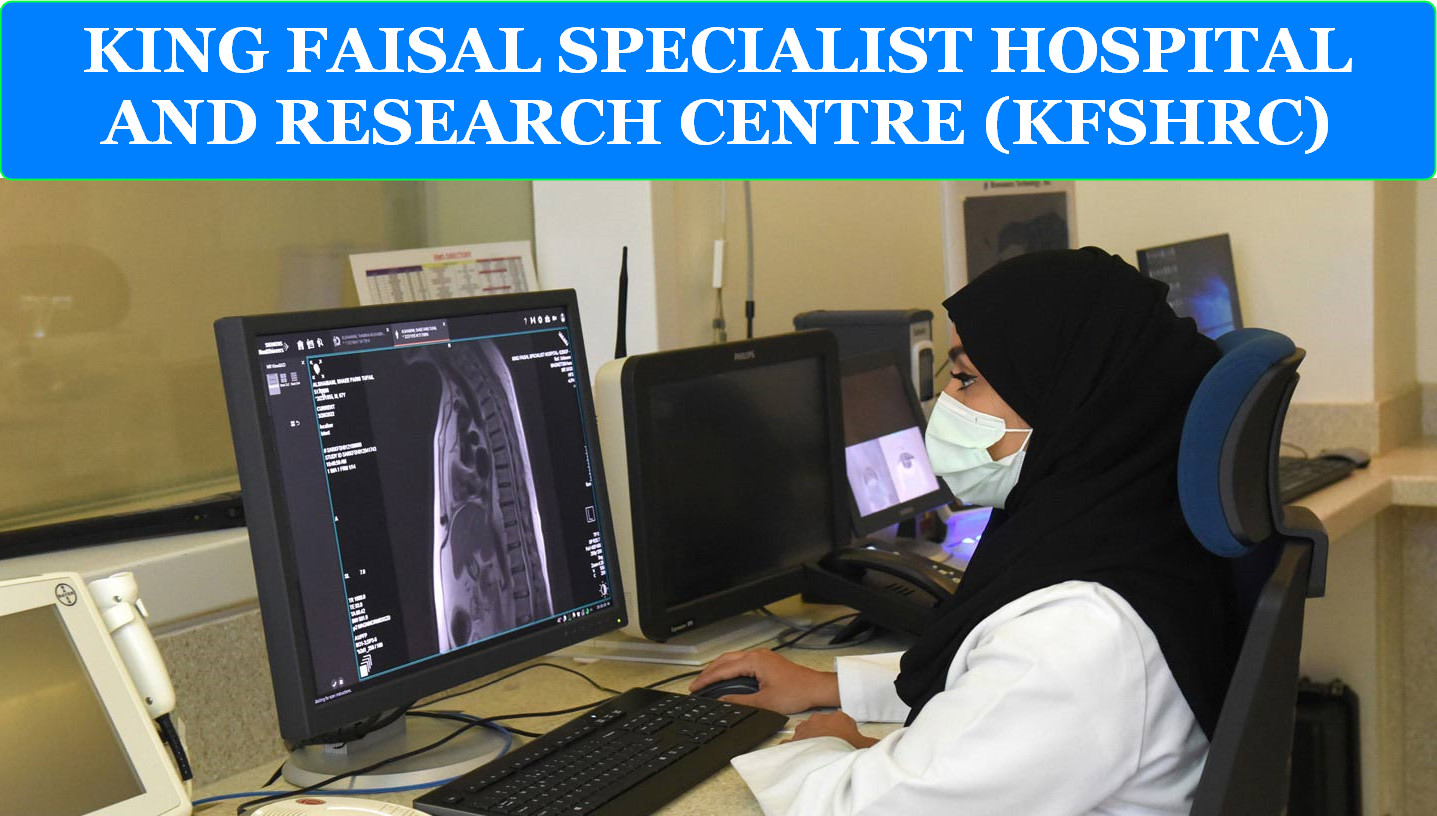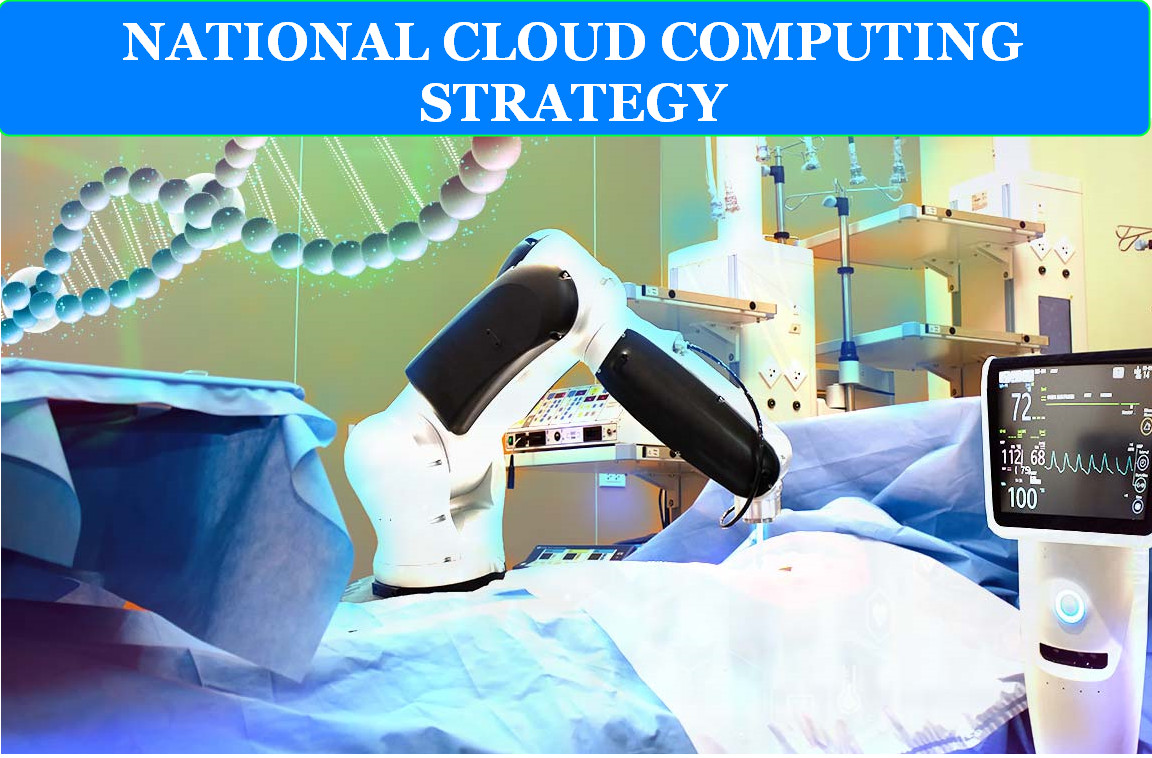SAUDI ARABIA’S MEDICAL CLOUD AI REVOLUTION: VISION 2030 AND THE FUTURE OF HEALTHCARE
Exploring how Saudi Arabia is pioneering the integration of artificial intelligence and cloud computing in healthcare through strategic national initiatives, NEOM’s futuristic health ecosystem, and groundbreaking medical innovations

INTRODUCTION: THE KINGDOM’S HEALTHCARE TRANSFORMATION
Saudi Arabia stands at the forefront of a revolutionary transformation in healthcare delivery, where Vision 2030’s ambitious goals converge with cutting-edge artificial intelligence and cloud computing technologies. As the Kingdom diversifies its economy and invests in human capital development, healthcare has emerged as a critical sector for technological innovation and economic growth. With a digital health market projected to expand from $3.2 billion in 2024 to $13.3 billion by 2031, Saudi Arabia is not merely adopting existing technologies—it is pioneering new paradigms for AI-powered healthcare that could reshape global medical practice.
The Kingdom’s strategic approach to medical cloud AI reflects a comprehensive understanding of healthcare’s evolving landscape, addressing challenges ranging from an aging population and rising chronic disease prevalence to the need for more accessible, efficient, and personalized healthcare services. Through initiatives led by the Saudi Data and Artificial Intelligence Authority (SDAIA), the ambitious NEOM megaproject, and partnerships with leading global technology companies, Saudi Arabia is creating an integrated ecosystem where AI, cloud computing, and advanced medical technologies converge to deliver unprecedented healthcare outcomes.
Saudi Arabia’s Vision 2030 driving economic transformation through AI and digital innovation AI Competence
VISION 2030: THE STRATEGIC FOUNDATION FOR HEALTHCARE AI
THE NATIONAL TRANSFORMATION AGENDA
Saudi Arabia’s Vision 2030, launched by Crown Prince Mohammed bin Salman in 2016, represents one of the world’s most ambitious national transformation programs. Within this comprehensive framework, healthcare emerges as a cornerstone sector where technology, innovation, and human development intersect to create sustainable economic growth and improved quality of life for Saudi citizens.
The healthcare transformation objectives within Vision 2030 are both ambitious and specific:
Increasing Life Expectancy: The Kingdom aims to increase average life expectancy from 74 to 80 years by 2030, requiring significant improvements in preventive care, chronic disease management, and healthcare accessibility.
Enhancing Healthcare Access: Vision 2030 prioritizes making healthcare services more accessible to all citizens, particularly in remote and underserved areas where traditional healthcare delivery models face significant challenges.
Improving Healthcare Value: The program emphasizes improving the value proposition of healthcare services through efficiency gains, cost optimization, and enhanced patient outcomes enabled by advanced technologies.
Strengthening Health Security: Following lessons learned from global health challenges, including the COVID-19 pandemic, Vision 2030 emphasizes building robust health security capabilities that can respond effectively to emerging health threats.
THE SAUDI DATA AND ARTIFICIAL INTELLIGENCE AUTHORITY (SDAIA)
Established in August 2019 by Royal Decree, SDAIA represents the institutional framework through which Saudi Arabia is orchestrating its transformation into a data-driven economy. SDAIA’s mandate extends across all sectors of the Saudi economy, with healthcare identified as a national priority due to the sector’s potential for AI-powered transformation.
SDAIA’s comprehensive strategy for implementing AI technologies in Saudi Arabia’s healthcare system Healthcare IT News
SDAIA’S HEALTHCARE STRATEGIC OBJECTIVES IN MEDICAL CLOUD AI IN SAUDI ARABIA
SDAIA has identified three primary strategic objectives for healthcare transformation:
Easing Access to Healthcare Services: AI-powered telemedicine platforms, mobile health applications, and cloud-based patient management systems are being deployed to extend healthcare access to remote areas and underserved populations. These technologies enable real-time consultations with specialists, continuous monitoring of chronic conditions, and immediate access to medical expertise regardless of geographical constraints.
Improving Healthcare Service Value: Advanced analytics, predictive modeling, and AI-powered diagnostic tools are being implemented to enhance the efficiency and effectiveness of healthcare delivery. These technologies enable more accurate diagnoses, personalized treatment plans, and optimized resource allocation, ultimately improving patient outcomes while reducing costs.
Strengthening Prevention Against Health Threats: AI-powered surveillance systems, predictive analytics for disease outbreaks, and population health management platforms are being developed to enhance the Kingdom’s ability to prevent, detect, and respond to health threats at both individual and population levels.
THE NATIONAL STRATEGY FOR DATA AND AI (NSDAI)
Announced in October 2020, the NSDAI provides a comprehensive roadmap for Saudi Arabia’s transformation into a global leader in data-driven economies. The strategy operates through a multi-phased approach:
Phase 1 (by 2025): Addressing national urgencies through rapid deployment of proven AI technologies in critical sectors, including healthcare emergency response, chronic disease management, and healthcare workforce optimization.
Phase 2 (by 2030): Building foundations for competitive advantage in key niche areas, including precision medicine, AI-powered drug discovery, and advanced medical imaging technologies.
Phase 3 (post-2030): Positioning Saudi Arabia as one of the world’s leading economies in utilizing and exporting data and AI technologies, with healthcare innovations serving as a key export industry.
NEOM: The Future of AI-Powered Healthcare
THE COGNITIVE CITY VISION
NEOM, Saudi Arabia’s $500 billion megaproject, represents perhaps the world’s most ambitious attempt to create a fully integrated AI-powered urban ecosystem. Within this futuristic city, healthcare is being reimagined from the ground up, with artificial intelligence, cloud computing, and advanced medical technologies serving as the foundation for a new model of health and wellbeing.

PREDICTIVE, PREVENTIVE, AND PERSONALIZED HEALTHCARE
NEOM’s healthcare system embodies a fundamental shift from reactive treatment to proactive health management. The city’s AI-powered healthcare infrastructure leverages continuous data collection, advanced analytics, and predictive modeling to deliver healthcare that is:
Predictive: AI algorithms analyze vast amounts of health data, environmental factors, genetic information, and lifestyle patterns to predict health risks before symptoms appear. This predictive capability enables early interventions that can prevent disease onset or progression.
Preventive: Rather than waiting for illness to occur, NEOM’s healthcare system actively promotes health and wellness through personalized recommendations, environmental optimization, and targeted interventions based on individual risk profiles.
Personalized: Every aspect of healthcare delivery is tailored to individual needs, preferences, and characteristics. AI systems consider genetic factors, medical history, lifestyle choices, and personal preferences to create highly individualized treatment and wellness plans.
ADVANCED HEALTHCARE INFRASTRUCTURE
NEOM is developing a comprehensive healthcare infrastructure that seamlessly integrates physical and digital capabilities:
Digital Health AI-Based Platforms: Cloud-native platforms that integrate data from multiple sources—wearable devices, environmental sensors, medical records, and genetic information—to provide comprehensive health insights and recommendations.
Integrated Hospital Systems: NEOM Hospital and associated healthcare facilities feature fully integrated digital systems that enable seamless care coordination, real-time monitoring, and AI-assisted clinical decision-making.
Community Health Networks: Advanced healthcare centers and community clinics equipped with AI-powered diagnostic tools, telemedicine capabilities, and cloud-based care coordination systems extend healthcare access throughout the NEOM region.
Emergency Response Systems: Integrated transportation networks including land, air, and sea ambulances equipped with AI-powered diagnostic and monitoring systems enable rapid response to medical emergencies.
REVOLUTIONARY PARTNERSHIPS AND TECHNOLOGIES
NEOM’s healthcare innovation is accelerated through strategic partnerships with leading global technology companies:
Medivis Augmented Reality Partnership: This collaboration integrates advanced augmented reality platforms into NEOM’s healthcare system, revolutionizing surgical planning, enhancing clinical precision, and improving patient outcomes through immersive, AI-powered visualization technologies.
Paradromics Brain-Computer Interface Initiative: Through the NEOM Investment Fund, this partnership advances brain-computer interface innovation and establishes a Center of Excellence in NEOM, accelerating clinical research and personalized care for neurological conditions.
InterSystems AI-Driven Healthcare Platform: This partnership enables a fully unified, future-ready healthcare information system that leverages AI to optimize care delivery, improve clinical outcomes, and enhance operational efficiency across NEOM’s healthcare network.
LEADING MEDICAL AI INSTITUTIONS AND INNOVATIONS
KING FAISAL SPECIALIST HOSPITAL AND RESEARCH CENTRE (KFSHRC)
KFSHRC stands as Saudi Arabia’s flagship medical institution and a global leader in AI-powered healthcare innovation. The hospital’s comprehensive AI implementation strategy encompasses multiple dimensions of healthcare delivery, from clinical care and research to operational efficiency and patient experience.

King Faisal Specialist Hospital unveiling AI-powered medical innovations at the Global AI Summit
AI-POWERED MEDICAL INNOVATIONS
KFSHRC has developed and implemented numerous groundbreaking AI applications:
Robotic Surgery Systems: The hospital has achieved global recognition for performing the world’s first fully robotic liver transplant, demonstrating the integration of AI-powered surgical robots with advanced imaging and navigation systems. These robotic systems enhance surgical precision, reduce patient trauma, and improve recovery outcomes.
AI-Enhanced Diagnostics: Advanced AI algorithms support radiologists and pathologists in interpreting medical images, identifying abnormalities, and providing quantitative assessments that improve diagnostic accuracy and speed.
Predictive Analytics Platforms: Machine learning systems analyze patient data to predict treatment responses, identify patients at risk of complications, and optimize treatment protocols for individual patients.
Genomic Medicine Integration: AI-powered genomic analysis platforms enable personalized medicine approaches, helping clinicians select optimal treatments based on individual genetic profiles and biomarkers.
STRATEGIC PARTNERSHIPS AND COLLABORATIONS
KFSHRC’s innovation capacity is enhanced through strategic partnerships with global technology leaders:
Siemens Healthineers Collaboration: A comprehensive master collaboration agreement announced in 2024 encompasses AI-powered medical imaging, digital health platforms, and advanced diagnostic technologies that will transform clinical care and research capabilities.
International Research Networks: KFSHRC participates in global research consortiums focused on AI applications in oncology, cardiovascular medicine, and transplant medicine, contributing to and benefiting from worldwide innovations.
THE WORLD’S FIRST AI MEDICAL CLINIC
In a groundbreaking development, Saudi Arabia became home to the world’s first AI medical clinic, launched through a partnership between Chinese startup Synyi AI and the Almoosa Health Group. Located in the eastern Al-Ahsa region, this pioneering facility represents a new paradigm in healthcare delivery where artificial intelligence serves as the primary diagnostic tool.
Revolutionary Diagnostic Approach
The AI clinic employs sophisticated algorithms that can:
Analyze Patient Symptoms: Advanced natural language processing systems interpret patient descriptions of symptoms, medical history, and current concerns to generate preliminary diagnoses.
Process Medical Images: Computer vision systems analyze medical images, including X-rays, CT scans, and MRIs, providing rapid interpretation and identification of abnormalities.
Recommend Treatment Protocols: AI algorithms suggest evidence-based treatment options based on patient characteristics, medical literature, and best practice guidelines.
Monitor Treatment Progress: Continuous monitoring systems track patient responses to treatments and recommend adjustments based on real-time data analysis.
CLOUD COMPUTING INFRASTRUCTURE AND DIGITAL PLATFORMS
NATIONAL CLOUD COMPUTING STRATEGY
Saudi Arabia’s approach to medical cloud AI is built upon a robust national cloud computing infrastructure that prioritizes security, scalability, and sovereignty. The Kingdom’s cloud AI market, valued at $2.8 billion in 2024 and projected to reach $12.3 billion by 2030, provides the technological foundation for healthcare transformation.

KEY INFRASTRUCTURE COMPONENTS
Sovereign Cloud Platforms: Saudi Arabia has developed domestic cloud computing capabilities that ensure data sovereignty while providing the computational power necessary for AI applications in healthcare.
Hybrid Cloud Architectures: Healthcare institutions utilize hybrid cloud models that combine on-premises infrastructure with public and private cloud services, optimizing performance, security, and cost-effectiveness.
Edge Computing Networks: Advanced edge computing deployments enable real-time AI processing at the point of care, reducing latency and improving response times for critical healthcare applications.
5G-Enabled Connectivity: The deployment of 5G networks throughout the Kingdom enables high-speed, low-latency connections that support real-time AI applications, telemedicine, and remote monitoring systems.
INFORMATICA’S AI-POWERED DATA MANAGEMENT PLATFORM
In April 2024, Informatica launched Saudi Arabia’s first AI-powered Intelligent Data Management Cloud Platform, providing healthcare organizations with advanced capabilities for managing, analyzing, and deriving insights from vast amounts of medical data.
PLATFORM CAPABILITIES IN MEDICAL CLOUD AI IN SAUDI ARABIA
Intelligent Data Integration: AI-powered systems automatically discover, catalog, and integrate data from multiple healthcare sources, including electronic health records, medical imaging systems, laboratory results, and wearable devices.
Advanced Analytics: Machine learning algorithms provide sophisticated analytical capabilities that can identify patterns, predict outcomes, and generate actionable insights from complex healthcare datasets.
Data Governance and Security: Comprehensive data governance frameworks ensure that healthcare data is managed in compliance with regulatory requirements while maintaining the highest levels of security and privacy protection.
Real-Time Processing: Stream processing capabilities enable real-time analysis of healthcare data, supporting immediate clinical decision-making and rapid response to changing patient conditions.
AI APPLICATIONS IN CLINICAL PRACTICE
DIAGNOSTIC IMAGING AND RADIOLOGY
Saudi Arabia’s investment in AI-powered diagnostic imaging represents one of the most mature applications of medical AI technology in the Kingdom.
ADVANCED IMAGING TECHNOLOGIES
AI-Enhanced Radiology: Machine learning algorithms assist radiologists in interpreting medical images, identifying abnormalities, and quantifying disease progression. These systems have demonstrated improvements in diagnostic accuracy of up to 17% compared to traditional interpretation methods.
Automated Image Analysis: Computer vision systems can automatically analyze large volumes of medical images, prioritizing urgent cases and flagging potential abnormalities for radiologist review.
Predictive Imaging: AI algorithms analyze imaging data to predict disease progression, treatment responses, and patient outcomes, enabling more informed clinical decision-making.
Multi-Modal Integration: Advanced AI systems integrate information from multiple imaging modalities—CT, MRI, ultrasound, and nuclear medicine—to provide comprehensive diagnostic assessments.
Precision Medicine and Genomics
Saudi Arabia is investing heavily in precision medicine initiatives that leverage AI to analyze genetic information and develop personalized treatment strategies.
GENOMIC ANALYSIS PLATFORMS
AI-Powered Genetic Analysis: Machine learning algorithms analyze genomic data to identify disease susceptibility, predict treatment responses, and recommend personalized therapeutic approaches.
Pharmacogenomics: AI systems analyze genetic variations that affect drug metabolism and response, enabling personalized medication selection and dosing.
Population Genomics: Large-scale genomic studies of the Saudi population are generating insights into genetic factors that contribute to disease prevalence and treatment outcomes in Middle Eastern populations.
CHRONIC DISEASE MANAGEMENT
With rising prevalence of diabetes, cardiovascular disease, and other chronic conditions, Saudi Arabia has prioritized AI-powered chronic disease management systems.
INTEGRATED CARE PLATFORMS
Continuous Monitoring: IoT devices and wearable sensors continuously collect health data, while AI algorithms analyze this information to detect early signs of disease progression or complications.
Predictive Analytics: Machine learning models predict which patients are at risk of hospitalization, disease progression, or treatment failure, enabling proactive interventions.
Personalized Care Plans: AI systems generate individualized care plans based on patient characteristics, medical history, lifestyle factors, and treatment preferences.
Remote Care Coordination: Cloud-based platforms enable healthcare providers to monitor and manage patients remotely, reducing the need for frequent in-person visits while maintaining high-quality care.
TELEMEDICINE AND REMOTE HEALTHCARE
AI-POWERED TELEMEDICINE PLATFORMS
Saudi Arabia’s vast geography and distributed population make telemedicine a critical component of healthcare delivery. AI technologies are enhancing telemedicine capabilities and improving access to specialized care.
ADVANCED TELEMEDICINE FEATURES
AI-Assisted Diagnosis: Virtual consultation platforms incorporate AI diagnostic tools that can analyze patient symptoms, medical images, and vital signs to support remote clinical decision-making.
Natural Language Processing: AI systems can analyze patient communications, extracting relevant medical information and helping healthcare providers understand patient concerns more effectively.
Remote Monitoring Integration: Telemedicine platforms integrate with wearable devices and home monitoring systems, enabling continuous oversight of patient health status between virtual visits.
Predictive Triage: AI algorithms analyze patient data to predict urgency levels and route patients to appropriate levels of care, optimizing resource utilization and improving patient outcomes.
RURAL AND REMOTE HEALTHCARE ACCESS
AI-powered telemedicine is particularly valuable for extending healthcare access to Saudi Arabia’s rural and remote regions.
Mobile Health Units: AI-equipped mobile healthcare units travel to remote areas, providing diagnostic capabilities and connecting patients with specialists through telemedicine platforms.
Community Health Workers: AI-powered tools support community health workers in remote areas, providing diagnostic assistance and treatment recommendations for common conditions.
Emergency Response: AI systems can analyze emergency situations in remote areas and coordinate appropriate responses, including air ambulance deployment and specialist consultation.
PUBLIC HEALTH AND POPULATION HEALTH MANAGEMENT
AI-POWERED SURVEILLANCE SYSTEMS
Saudi Arabia has developed sophisticated AI-powered public health surveillance systems that can detect, track, and respond to health threats at the population level.
DISEASE SURVEILLANCE CAPABILITIES
Outbreak Detection: Machine learning algorithms analyze health data from multiple sources to identify unusual disease patterns that might indicate the beginning of an outbreak.
Contact Tracing: AI systems can rapidly identify and track contacts of infected individuals, supporting public health responses to infectious diseases.
Risk Assessment: Predictive models assess population-level health risks based on environmental factors, demographic characteristics, and behavioral patterns.
Resource Optimization: AI algorithms optimize the allocation of public health resources, ensuring that interventions are deployed where they can have the greatest impact.
ENVIRONMENTAL HEALTH MONITORING
Air Quality Analysis: AI systems monitor air quality data and predict health impacts on vulnerable populations, enabling proactive public health interventions.
Climate Health: Machine learning models analyze climate data to predict heat-related illnesses, vector-borne disease risks, and other climate-related health challenges.
Water Quality Monitoring: AI-powered systems continuously monitor water quality and detect contamination risks that could affect public health.
INTERNATIONAL PARTNERSHIPS AND GLOBAL COLLABORATION
STRATEGIC TECHNOLOGY PARTNERSHIPS
Saudi Arabia’s medical AI development is accelerated through strategic partnerships with leading global technology companies and research institutions.
MAJOR PARTNERSHIP INITIATIVES
Amazon Web Services (AWS) Collaboration: A $5 billion strategic AI partnership announced between Amazon and Humain aligns with Vision 2030 and focuses on building AI-powered healthcare infrastructure and applications.
Philips Healthcare Partnership: SDAIA has partnered with Philips to drive AI adoption in Saudi Arabia’s healthcare system, focusing on diagnostic imaging, patient monitoring, and healthcare informatics.
IBM Sustainability Initiative: SDAIA and the Ministry of Energy have partnered with IBM to accelerate sustainability initiatives using AI, including applications in environmental health and healthcare sustainability.
IQVIA Collaboration: Partnerships with leading healthcare analytics companies are advancing real-world evidence generation and population health research capabilities.
RESEARCH AND DEVELOPMENT INITIATIVES
International Research Collaborations: Saudi universities and research institutions participate in global AI research networks, contributing to and benefiting from worldwide advances in medical AI.
Clinical Trial Innovation: AI-powered clinical trial platforms are being developed to accelerate medical research and drug development within the Kingdom.
Technology Transfer: Programs facilitate the transfer of AI technologies and expertise between international partners and Saudi healthcare institutions.
CHALLENGES AND FUTURE DIRECTIONS
IMPLEMENTATION CHALLENGES
Despite significant progress, Saudi Arabia faces several challenges in implementing medical cloud AI at scale:
Data Quality and Standardization: Ensuring high-quality, standardized health data across different healthcare systems and institutions remains a significant challenge requiring ongoing investment and coordination.
Healthcare Professional Training: Building AI literacy among healthcare professionals requires comprehensive training programs and change management initiatives.
Regulatory Framework Development: Developing appropriate regulatory frameworks for AI medical devices and applications requires balancing innovation with patient safety and privacy protection.
Infrastructure Development: Continued investment in digital infrastructure, including high-speed internet access and cloud computing capabilities, is necessary to support widespread AI adoption.
FUTURE INNOVATIONS AND OPPORTUNITIES
Quantum Computing Integration: Saudi Arabia is exploring the potential applications of quantum computing in healthcare AI, particularly for drug discovery and complex optimization problems.
Advanced Robotics: The integration of AI with advanced robotics systems promises to revolutionize surgical procedures, rehabilitation, and patient care.
Digital Therapeutics: AI-powered digital therapeutics are being developed to provide personalized, evidence-based interventions for mental health, chronic disease management, and rehabilitation.
Blockchain Integration: Blockchain technologies are being explored for secure health data sharing, clinical trial integrity, and pharmaceutical supply chain management.
ECONOMIC IMPACT AND INVESTMENT OPPORTUNITIES
HEALTHCARE AI MARKET GROWTH
The economic impact of medical cloud AI in Saudi Arabia extends far beyond the healthcare sector itself:
Direct Healthcare Savings: AI implementations are generating significant cost savings through improved efficiency, reduced medical errors, and optimized resource utilization.
Economic Diversification: The healthcare AI sector is contributing to Saudi Arabia’s economic diversification goals, reducing dependence on oil revenues and creating high-value technology jobs.
Innovation Ecosystem: The development of healthcare AI capabilities is fostering a broader innovation ecosystem that attracts international investment and talent.
Export Potential: Saudi Arabia’s healthcare AI innovations have the potential to serve regional and global markets, creating new export opportunities.
Investment in Human Capital
Education and Training: Significant investments in education and training programs are building local capabilities in AI, data science, and digital health technologies.
Research and Development: Funding for healthcare AI research and development is creating new knowledge and intellectual property that can be commercialized globally.
Entrepreneurship Support: Incubators and accelerators are supporting the development of healthcare AI startups and fostering entrepreneurship in the technology sector.
CONCLUSION: SAUDI ARABIA’S VISION FOR THE FUTURE OF HEALTHCARE
Saudi Arabia’s comprehensive approach to medical cloud AI represents a transformative vision that extends far beyond technology adoption to encompass fundamental changes in how healthcare is conceptualized, delivered, and experienced. Through Vision 2030’s strategic framework, SDAIA’s coordinated national approach, and NEOM’s revolutionary urban healthcare ecosystem, the Kingdom is demonstrating that emerging economies can lead rather than follow in the development and implementation of advanced healthcare technologies.
The success of Saudi Arabia’s medical cloud AI initiatives stems from several key factors: strong government leadership and strategic vision, substantial financial investments in infrastructure and human capital, collaborative partnerships with global technology leaders, and a comprehensive approach that addresses regulatory, technical, and social dimensions of healthcare transformation. As initiatives like KFSHRC’s AI-powered medical innovations, the world’s first AI medical clinic, and NEOM’s predictive healthcare ecosystem continue to mature, Saudi Arabia is establishing itself as a global reference point for healthcare AI implementation.
Looking toward the future, Saudi Arabia’s continued investment in quantum computing, advanced robotics, digital therapeutics, and emerging technologies suggests that the Kingdom will remain at the forefront of healthcare innovation for decades to come. The lessons learned from Saudi Arabia’s comprehensive approach—emphasizing strategic planning, public-private partnerships, human capital development, and patient-centered design—provide valuable insights for other nations seeking to harness the transformative potential of AI in healthcare.
As the Kingdom progresses toward its 2030 goals of increasing life expectancy to 80 years and creating a world-leading healthcare system, the integration of AI and cloud computing technologies will continue to serve as critical enablers of this transformation. Saudi Arabia’s medical cloud AI revolution demonstrates that with visionary leadership, strategic investment, and collaborative innovation, it is possible to create healthcare systems that not only serve local populations but also contribute to global health advancement and economic prosperity.
APPLICATION TO CHECK ACTIVITY OF YOUR AUTOCLAVE FROM YOUR PC or MOBILE PHONE
